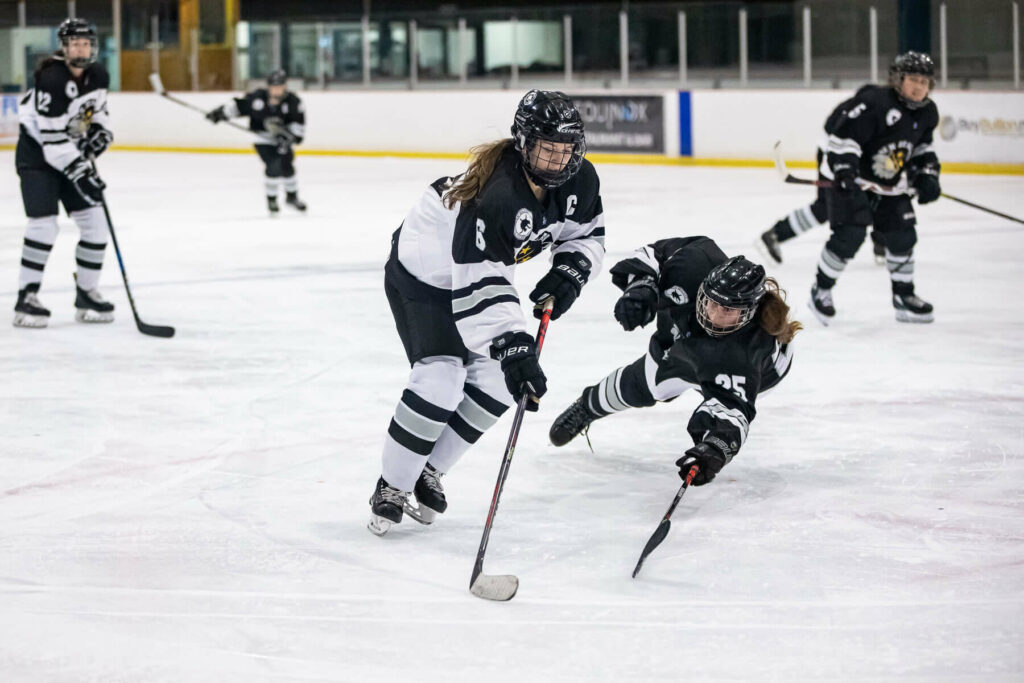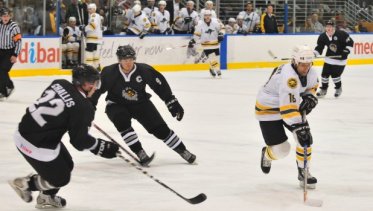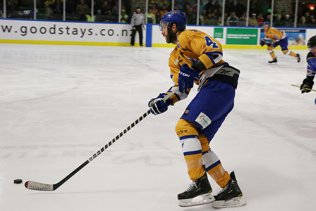
SUGAR, SPICE AND GIRLS ON ICE | THE 2021 WOMEN’S TRIPLE STAR CAMP
Well folks, here we find ourselves in yet another lockdown due to the COVID-19 outbreak. Although it is gloomy and rough without being able to lace up the boots or tune into an NZIHL game, there are ways to tough out this hockey-less period, such as by reminiscing what events have happened in New Zealand ice hockey these last few months. The most recent of which is the Women’s Triple Star Camp. The Triple Star name is not new to the hockey community, as earlier in the year the Men’s Triple Star Camp was held, which the women’s version holds the same philosophy and focus as.
On 5th of June to the 7th of June, roughly 70 female hockey players and coaches from around the country took over the Dunedin Ice Stadium where they were provided with the opportunity to expand and develop their skills. So what is the Triple Star Camp? Named after the verse ‘Guard Pacific’s triple star’ in our national anthem, the camp focuses on three goals, or three ‘stars’:
- Strengthen NZ identity, where pride is held in the jersey and in how we play
- To build good habits/skills both on and off the ice to create better players
- To grow as a unit, we are a whānau so everyone must pull in the same direction.

Essentially, these camps are a branch from the world-class hockey programme that the New Zealand Ice Hockey Federation (NZIHF) is building. Included in these camps are national teams, and the opportunity to provide all players, coaches and staff with the ability to further develop to prepare as a whole for future domestic and international hockey experiences. Through the Triple Star Camp, senior players are given the opportunity to train and play together on home soil while also granting them the capacity to solidify their skills and leave their legacy for junior players to look up to. By including junior players, the beginning part of their legacy can begin, and they are provided with a top-level hockey experience by interacting with senior players. These camps are a motivator for players and is something for them to look forward to every year. By being part of these camps, players are sure to gain experience, connections and pride for being part of such a diverse community.
As it has been over two months since the camp was held, players and coaches alike have had a lot to say about their experience with the Triple Star Programme. Darren Blong, National Coaching Coordinator, says “It was a real pleasure being involved with holding a camp like this for the first time where we had 70+ women’s players and coaches working together towards a common goal.” Rachel Park, Head coach of the New Zealand Ice Fernz, says that as the camp was the first women’s-specific of its kind in the last few years, she thought it was “Well organised and had good value for the dollars spent, the girls had a good number of hours of ice throughout the weekend and the intensity if the training stayed high throughout”. Rachel’s highlights of the camp included “seeing the younger girls compete on the ice with some of our most experienced Fernz where some of those younger girls have only a couple of years of experience and yet, their dedication and drive was evident. They were hungry for the puck and that’s really important in such a fast-paced sport; there isn’t room for hesitation. It’s clear there will be considerable talent coming up through the U18 program for some time; realising that and seeing it firsthand was a highlight for me.” Jan Goulding, NZIHF’s Women’s Coordinator, says “It was great to bring together the women’s hockey community from across NZ, and to have the younger players training and playing alongside the National Team players. We have gotten lots of excellent feedback on this from parents and the players themselves and that it was excellent role modelling”. She sees it as a great way to unite the women’s hockey community from across the country, and that having the older role models was a major plus for the junior players. Michelle Cox, Assistant Coach of New Zealand’s U18’s and the Auckland Steel, says that her highlight of the camp was “seeing the change in confidence levels of the younger players from the first session up to the last. Ones who possibly had never been to a camp of this type before and didn’t quite know what to expect. When they first get on the ice, they’re quite shy and reserved, and hold back a bit. At some point over the weekend, they have a bit of a light bulb moment where they realise that they can actually compete at a higher level than what they think they can. They dig that little bit deeper and that’s when their confidence starts shining through and their development really begins”. Helen Murray, Captain of the New Zealand Ice Fernz, said that her highlight was “Seeing so many girls all together in one place as the biggest issue is not being able to all be together. It was exciting to see all the talent coming through and the fact that the camp had drills that were challenging for everyone across all skill levels was really good”.

Though this camp is the stepping stone to growing women’s ice hockey in New Zealand, the NZIHF is already underway with more goals for developing our players. Darren Blong says “Next year we need some sort of competition going that is ideally outside of New Zealand, and to further develop the skills we need to have more camps. Domestically, we need to run more development programmes for women’s hockey that is U18 and is combined with male players (which is already happening) and to combine with the Triple StarPprogramme on an annual basis”. ” Overall, Darren sees that numbers of players need to grow so that the game itself can grow, providing more competition. Jan Goulding believes that “we have a great opportunity to grow women’s hockey in New Zealand, and in turn to grow our national programs that are competitive on the world stage.” Jan also says that “The NZIHF are working in a more inclusive manner that encompasses everyone and together we can all grow Ice Hockey and the women’s program in NZ. Teams can still battle on ice in games, however once off ice the power of growing the sport is through working together, sharing of ideas, resources, expertise.” Michelle, Darren and Jan all agree that running more frequent camps would be beneficial to the women’s game. Jan’s reasoning for this is “Having a camp at the beginning of the season would help to set the bar as such for the season, sets in place the importance of fitness, training/coaching programs, shares information around the national program and how to get onto that program. Brings the female program together to look at what’s on for the year as such and how to get the best out of the women’s hockey program for the year. This gives the coaches a view of players for the NZWIHL and up and coming youth for development. The second camp is more at the end of the season and possibly more for those seeking to get acceptance into the National programs – Ice Fernz and NZWU18. At this camp, the focus is at a more National Level and working towards developing players for National Team representation and seeking the expectations for being accepted into those programs”

Right now, the NZIHF has a multitude of initiatives in place to grow the women’s game which includes the Triple Star Camps, NZIHF Youth Development Camps/Tournaments which are held throughout the year for players aged U9, U15, U18 as well as an U21 Tournament and the Superleague which the NZIHF supports for the growth of the sport throughout NZ. The more women’s-specific initiatives which include the New Zealand Women’s Ice Hockey League (NZWIHL) which Jan refers to as “The platform that promotes and engages people to play”, IIHF’s Worlds Girls Day which runs each year in October- Jan sees that “this could be developed further to promote female hockey”, the Girls Global Game which is scheduled for March 2022 and is considered as a fun event worldwide and the Leaside program which once Covid restrictions allow, will be reestablished. Not to mention the National Programs – Ice Fernz and NZWU18, as well as Ta couple of private initiatives that happen each year that are also in support of growing the women’s program such as the Southern X Tournament held in Tekapo and run by Canterbury players, as well as the Challenge Cup run by Angelique Mawson in Dunedin.
It is clear that the women are ripping up the ice in New Zealand as of right now and are really doing their best to grow their game. Not only is it great to see the sport itself growing in New Zealand, but the growing of female presence in the sport too. With so many opportunities being made available for women, it’s exciting to see the great things coming up so keep your eyes peeled for more information about further events to come. This article may have made your itching for the ice even greater but please stay in your bubbles, keep watching that Netflix show and do that thing you never quite get around to fixing.




